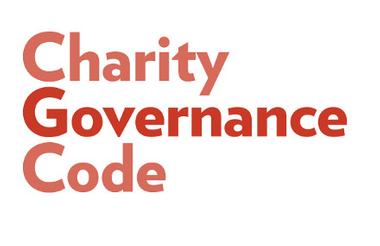There are no plans to charge users of the Charity Governance Code, the steering group responsible for it has said.
The group consulted on potential changes to the code earlier this year and received nearly 500 responses to its questions including whether charities would be “willing to pay a small fee”, based on their size, to use it.
In a new statement, the steering group said it has “no plans to charge charities for use of the code”.
“The group takes seriously its responsibility to ensure a sustainable code for the sector and will continue to explore all options for its ongoing financial viability,” it said.
“For now, the group’s priority is to deliver an updated version of the code.”
EDI principle ‘challenging’
The steering group reported that almost 400 of the responses came from people “that use or are familiar with the code”, 95% of whom said they were satisfied with it.
Some 93% said they found the code clear and understood what charities needed to do to implement it.
However, the group said that feedback suggested charities find the code’s equality, diversity and inclusion (EDI) principle most challenging.
Many charities also suggested that the code’s language could be more accessible, and some respondents said they would like more guidance on how to implement it.
Meanwhile, a “significant number” of responses said that the code’s status within the sector could be strengthened.
Responses to the consultation also highlighted a range of challenges which charities are facing, including financial resilience, risk management, boardroom behaviours, trustee succession planning, cyber-risk, and polarising debates about social issues.
Next phase
The steering group – whose members include NCVO, ACEVO and the Association of Chairs – now plans to hold a series of focus groups before publishing a new code next year.
These focus groups will prioritise discussing how to tailor the code for charities of different sizes, supporting charities to implement it, clarifying whether any additions are needed and exploring how to raise its profile in the sector.
Steering group chair Radojka Miljevic said: “It is deeply encouraging to see such high levels of engagement with our consultation and to hear that the Charity Governance Code is such a valuable resource to so many charities.
“We have received a huge amount of highly valuable, detailed feedback, and we are very grateful to all those who have responded.
“We will continue to listen to and engage with charities during the next phase of our work to update the code.”
Ben Wittenberg, director of development and delivery for the Directory of Social Change (DSC), said: “It’s great to have a clear plan for the development of the Charity Governance Code that doesn’t involve charging, and a focus on raising its profile is going to be really important in helping to grow the number of boards that it’s clearly helping already.
“Governance reviews carried out using DSC’s free Governance App, which draws heavily on the code, also show some positive results but also big challenges for trustees relating to EDI in particular – we'll be sharing further details in the coming weeks.”
Positive feedback ‘shows code’s value’
Andrew Purkis, a former Charity Commission trustee, said: “The stellar rates of satisfaction with the code underline how effective and important it is.
“Very many of the internal difficulties in which charities find themselves turn out to be down to poor governance, and the code is an excellent, user-friendly checklist for boards to help them be the best trustees they can.
“It is great that 400 respondents gave the code such a glowing report, but that leaves up to 120,000 who might benefit just as much, so the task of refreshing and marketing the code across the whole sector is absolutely key.”
Sarah Elliott, chief executive of NCVO, said: “The overwhelmingly positive response to the consultation demonstrates the code’s value, and we look forward to continuing our work to ensure it evolves to meet the sector’s needs.
“We know that governance is one of the top concerns for our members, and ensuring that the voices and experiences of charities of all sizes were heard as part of this consultation was important to us.
“We also recognise that many organisations are seeking support on how to implement the code, and we will provide resources, tools, and guidance to help our members embed it effectively.”
Related Articles










